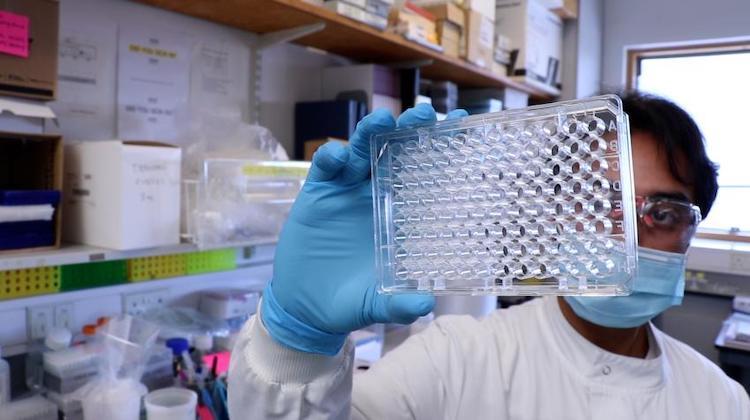By J Nastranis
NEW YORK (IDN) — A group of scientists from the University of Aberdeen, a United Nations Academic Impact (UNAI) member institution in Britain, together with Vertebrate Antibodies Ltd and the National Health Service (NHS) Grampian have developed a “game-changing technology”. This technology has “tremendous potential to change the trajectory of global recovery from the COVID-19 pandemic,” project lead from the Aberdeen university, Professor Mirela Delibegovic, emphasized.
Because the emergence of new variants of the COVID-19 virus has shown that it is of critical relevance to keep track of them in the community as both natural and acquired immunity wanes.
The group of scientists has also developed ground-breaking antibody tests combining innovative artificial intelligence (AI) and epitope display technologies. The collaborative team of scientists, clinicians, and AI experts, worked tirelessly to develop antibody tests (also known as serology tests), that could help address these various challenges as they emerge. However, existing antibody technologies suffer from inherent limitations affecting their performance.
Funded by the Rapid Response in COVID-19 (RARC-19) research program of the Scottish Government, the team used AI technology, termed EpitopePredikt®, to identify specific elements of the virus. The objective was to see which one of such elements trigger the body’s immune defence.
Therefore, the researchers developed a new way, coined EpitoGen® technology, to combine and display up to 100 of these viral elements as they would appear naturally as part of the virus using a biological platform.
This innovative technology resulting from this scientific endeavour effectively detects an antibody response to new variants without losing accuracy. Quality assurance assessments demonstrated that these tests detected antibody responses from patient samples with more than 99 per cent accuracy.
Furthermore, the new tests can assess the long-term immunity of the individuals and whether immunity is vaccine-induced or is just a natural result of previous exposure to the infection—information that is indeed invaluable in helping to prevent the spread of infection, and shape public health guidelines and regulations. Currently, available tests struggle to detect variants of the virus and give little or no information about the real impact of virus mutations on vaccine performance.
The new tests can also provide information that can be used to estimate the duration of the vaccine’s immunity and the effectiveness of the vaccine on emerging variants. This data is quite critical to obtaining an accurate picture of the outbreak and its evolution, providing information that could inform and influence public health measures.
“The virus mutates into more transmissible variants, which means that we need a novel approach to incorporate mutant strains into the tests,” said professor Mirela Delibegovic, project lead from the university.
The efforts by scientists of the University of Aberdeen align with Goal 3: Good Health and Well-Being, within the 2030 Agenda for Sustainable Development, underlining how scientific knowledge and expertise in institutions of higher education are making a significant contribution to addressing the ongoing pandemic while helping to boost global public health. [IDN-InDepthNews – 23 October 2022]
Photo: This is a game-changing technology,” said Professor Mirela Delibegovic, project lead from the University of Aberdeen. Credit: University of Aberdeen.
IDN is the flagship agency of the Non-profit International Press Syndicate.
We believe in the free flow of information. Republish our articles for free, online or in print, under Creative Commons Attribution 4.0 International, except for articles that are republished with permission.

